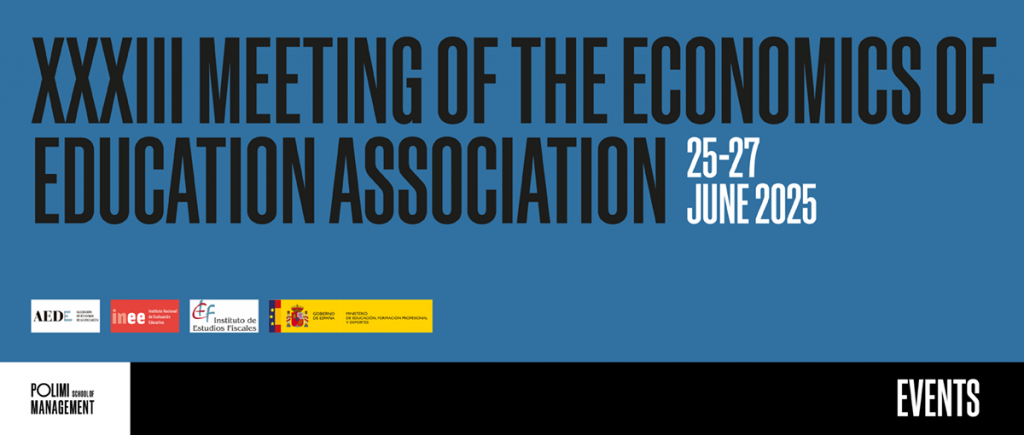conference
Education and Policy: The XXXIII AEDE Meeting, held at the Politecnico di Milano, brought together over 100 experts from around the world.

On 26 and 27 June 2025, the Politecnico di Milano will host the 33rd AEDE Meeting, an international event exploring the relationship between research, educational practice, and policy decisions. Over 110 experts from 77 universities discussed global challenges and solutions for making education systems more equitable and effective.
The POLIMI School of Management at the Politecnico di Milano hosted the annual meeting of the Asociación de Economía de la Educación (AEDE) on 26 and 27 June 2025. The event was originally scheduled to take place at the University of Zaragoza in Spain. The event brought together over 110 researchers and experts from 77 universities worldwide.
Now in its 33rd year, the conference has, since 1992, provided a forum for international reflection and discussion on the role of education in the economic and social life of individual countries from a variety of perspectives.
At the heart of the debate, as Prof. Tommaso Agasisti from POLIMI School of Management of Politecnico di Milano, highlighted at the opening, is a crucial issue for the worlds of research and education policy: how to build solid bridges between scientific evidence, teaching practice, and policy decisions.
In a context where the work of data analysis, the construction of rigorous models, and the development of robust results by researchers risk remaining confined to academia, the AEDE Meeting is a valuable platform for dialogue between research and policy decisions.
The event combines academic interest with the concrete commitment of the organisers and participants to communicate the key findings of the debate to civil society and decision-makers. The ultimate goal is to deepen knowledge of education systems and inform education policy in all its aspects, with the aim of improving education systems globally.
To achieve this ambitious goal, it was essential not only to share numerous experiences, but also to foster an understanding of how institutions function in various countries, how they address the daily challenges of educational policy and how they interact with the research community.
During the plenaries, leading experts in the field of economics of education and educational assessment, including Roberto Ricci from INVALSI, Carmen Tovar from INEE – Spain and Miguel Urquiola from Columbia University, offered wide-ranging reflections on global trends in education, such as digital transformation, curriculum reforms and systemic inequalities.
Several issues were then addressed in depth during the parallel sessions:
- Educational inequalities: analysing how gender, socio-economic status and context influence access to education and educational outcomes
- The determinants of school performance: exploring environmental, social and organisational factors affecting learning
- Evaluation of educational policies: using international data and quantitative tools to measure the effectiveness of interventions
- The relationship between higher education and the labour market: highlighting how universities influence employability and professional development
- Well-being and non-cognitive skills: recognised as central to students’ educational success and personal growth
The XXXIII AEDE Meeting confirmed the importance of an international dialogue based on data and empirical research to guide the development of education systems. It also highlighted that school policies must consider not only performance, but also inclusivity, equity, and student well-being, in order to create a fairer and more effective education system.





